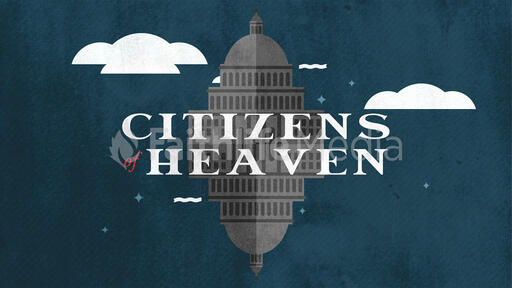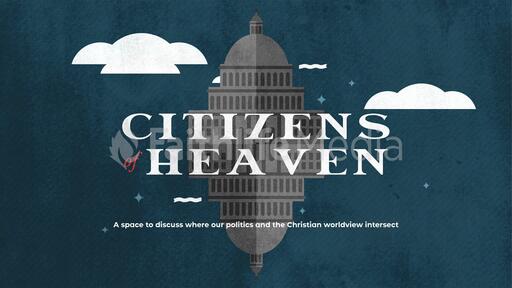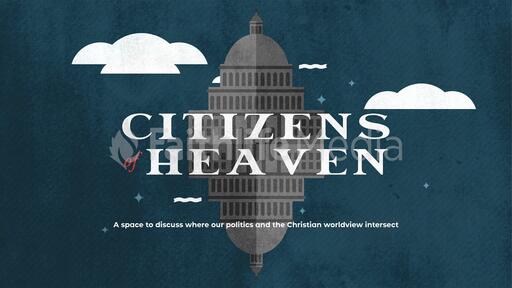Where are you from?
Sermon • Submitted • Presented
0 ratings
· 1 viewNotes
Transcript
Philippians 3:17-4:1
Philippians 3:17-4:1
In the name of the Father and of the Son and of the Holy Spirit. Amen.
Where are you from? That can be a hard question to answer. Some of you might say that you are from Millstadt or Waterloo or _______. Others might say that you are from Illinois, or that you are from the United States. If you grew up elsewhere in the US or elsewhere in the world, you might have a different answer. For me, the answer to the question “Where are you from?” often depends on who asks and where I am. If I’m in St Louis and someone asks where I’m from, I answer that I’m from Millstadt - that small town between Columbia and Belleville. But if someone in Millstadt asks where I from, I assume that it’s because they already know I didn’t grow up here - so I tell them I’m from Michigan. Of course, not having grown up here also exempts me from one of the most common identity questions people in this area ask: “Where did you go to high school?” Since very few are familiar with Valley Lutheran High School or Saginaw, Michigan, I often get odd looks when I answer that question.
Small towns like the ones we have in southern Illinois have a very strong sense of identity. There are things that Millstadt is known for, just like there are things that Belleville, Columbia, Freeburg, Waterloo, and many other towns are known for. There’s a strong sense of pride based on where you’re from. You care about where you where born and where you live because that says something about who you are. Where you are from is part of your identity, just like the language you speak, the work you do, the clothes you wear, and so many other things about you.
St Paul writes to the Christians in Philippi about their sense of identity. Paul cares very little about how much they love the city of Philippi, but encourages them to see their identity, their sense of self, and their “from-ness” (for lack of a better word) not from that Roman city, nor from living like the people who lived around them, but instead to see their citizenship in heaven. Heaven is commanded, not by a mayor, governor, or emperor but by the Lord Jesus Christ. “Look at Jesus!” Paul commands. “Imitate Jesus! Recognize that Jesus is the Lord of all things, and the One who preserves you and all creation.”
That command, both for the Philippians and for you, is a difficult command. It is quick and easy for people, including you and me, to see our identity based on where we are from and on our own sense of identity. Yet, our identity is marred by sin. Our sin takes our eyes off of Jesus and fixates on ourselves. When we are honest, we must confess that we set our own sense of who we are and locate our identity in ourselves. We want to fit in with the people around us, located our identity in where we live, how we act, and so many other things about this human life.
But Paul has the audacity to say that we are not from here. This world is not our home. The city that we live in, the state that issued our driver’s license, the country that we live in and pray for does not set our ultimate identity. No, instead we are strangers in a strange land. We join the prayer of the people of Jerusalem who prayed in the foreign land of Babylon, using Psalm 137 that we prayed before. They grieved that they were not at home. They lived in the pattern of God’s people, who were so often foreigners and wanderers. Abraham was not from the Promised Land, but the Lord took him to that place where he was a stranger, promising that it would be the land of his people. But Abraham’s family didn’t stay long, following Joseph to Egypt just a few generations later. The Lord brought them back following slavery in Egypt, and when they presented their first-fruits to the Lord after their return, they confessed that their father Abraham was a wandering Aramean (Dt 26). Exile to Babylon, then, was one more time that God’s people were away from their home.
And so it is with us. This village, or whatever city you currently reside in, is not your home. This state, as well as this country that God has provided for you, is not your home. Your drivers license and your passport are stamped with state and federal seals, but your citizenship is in heaven. The ruler of your life and the giver of every good thing that you have isn’t in Springfield or Washington, but in heaven. Your Lord Jesus will transform you from your lowly body to be like His glorious body. The Lord Jesus declares that you are a member of His heavenly kingdom! He is the One that you look to for every good thing, and He is the One who establishes who you are.
By the grace of God, you are good. That’s not because you have made yourself good or because you have worked hard or established yourself in one place or another. He has made you part of His people - a holy nation, a royal priesthood, a people belonging to God. He has also established you in the city, state, and country that you live in, but make no mistake about it - you belong to the people of God and that is your ultimate identity.
Why does that matter to you? In a time when where you were born and what country you live in seems to be so important, God declares that what is more important is His relationship with you. When you see people who were born in another country and who have a different culture living around you, don’t consider them “foreigners” or “strangers” or unwelcome around you. They are your neighbors, provided by the Lord your God for you to love. Where they were born, when they came to this place, the language they speak, the color of their skin, and so many other things is not nearly as important as this universal truth: The Lord Jesus died on the cross for them for the forgiveness of their sins, just like He did for you. The grace of God is your common language with all people. Unfortunately, not all people believe this Gospel truth. The Lord has called you to be the neighbor of those around you, just as the Samaritan showed himself to be the neighbor of the Jewish man who had been beaten and left for dead. Be the neighbor of those that the Lord your God has put around you, caring for their needs and sharing the common language of the forgiveness of sins and grace of God.
In the name of the Father and of the Son and of the Holy Spirit. Amen.
ADVERTISEMENT
Related Media
See moreRelated Sermons
See more

Jeremy Smith • 28 views




